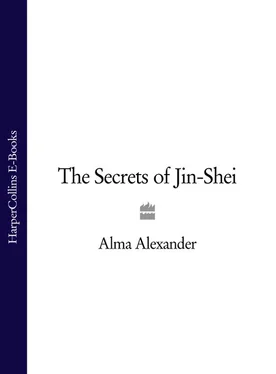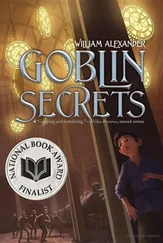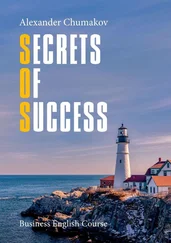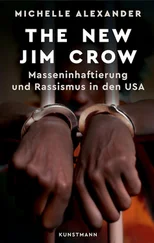Now Tai had followed in her mother’s footsteps and had gained a sister in the Imperial Court of Syai – but a sister of far higher lineage than Rimshi had ever aspired to.
Tai knew about jin-shei , the theory and the protocol of it, but now it had suddenly leaped off the pages written in neat rows of jin-ashu , had taken a real physical shape from the ethereal words of her mother’s early stories. It was real now, it was hers. She had asked, in feverish excitement, what she had to do in response to the note the Little Empress had sent with her gift of the red leather journal, and Rimshi had instructed her to send a return message bearing the same words. It was Rimshi herself who took this reply back to the Palace, that same evening, and Antian had received it from her hand with a smile.
‘Tell her that I will look for her in the gardens tomorrow,’ she had said.
‘I will, Little Empress,’ Rimshi said, bowing.
It was sealed, thus. Tai had been too keyed up to even think about going to bed, so Rimshi had made them both some green tea and they sat up well past Tai’s usual bedtime, talking about the magical day.
‘How do I talk to her? What do I call her?’ Tai had been in and out of this Court for years, tagging at Rimshi’s heels – but it had always been as someone who was there as an adjunct to somebody else. Someone whom the Court found necessary. A child, who ought to be invisible, addressing nobody and making sure that she was not observed by anyone long enough to be addressed. Now, it would be different …; or so Tai imagined. In all the tumult she had forgotten that she knew how to talk to this Princess, that she had done so already on the lost little balcony that morning.
‘She will not wish you to be too formal with her, now that you are her jin-shei ,’ Rimshi said. ‘She wanted a sister and a companion, not a servant or a slave. She has enough attendants; she wants a friend.’
‘But I don’t know …;’
‘Hush, Tai-ban. You have to sleep this night. It will come right in the morning. This is the beginning, that is all – the liu-kala of your first jin-shei bond. It is barely born, in its first age, it cannot be expected to do all and know all.’
‘But it isn’t her first, is it?’ Tai asked.
‘I do not know; this is something that you will find out. This is how the circle grows – if she has other sisters in jin-shei she will tell you about them. They then may become your own, through her, if you choose to pledge with them – or they will remain your jin-shei-bao by proxy, a sister of a sister. But that is something that lies between you and your jin-shei-bao and concerns nobody else at all. I know of this one, now, because I am your mother, and it is still my task to know – but once you are of age, and that is not too many years in the future, this is something that is yours and yours alone. I probably will not know who your jin-shei sisters are when you are eighteen or twenty. I may not even know how many there are in your circle. And that is the right and proper way.’
‘Eighteen?’ Tai said, settling back into her pillow, suddenly sleepy. ‘That won’t be for a long time.’
Rimshi stood over her, smiling, for a long time after she had fallen asleep, her dark hair spilled over the pillow. But her eyes were too bright, and the smile was a little sad; a whole tangle of emotions were filling Rimshi’s mind and heart. She was proud that Tai had been chosen for a tie so deep while still so young – and by no less a personage than the Little Empress herself. But there was also a fear, the fear born of her own past. The story she had never told Tai, who had idolized her father and was still mourning his loss.
Rimshi had been sixteen when Tsexai had begun to court her; he had done it so subtly, so deftly, that she had not even realized that she was falling in love until it was done, and sealed, and irrevocable. And then Meilin had come to her, and Rimshi had known from the expression on her face that she had come with a hard thing to say. And it had been hard. It had almost been more than Rimshi could bear.
‘Tsexai …; his family owns a business like to our own,’ Meilin had said. ‘So do two other families, but none have heirs of marriageable age. Like me. Like him. My family is all set to approach his, to ask for his hand, for me. Rimshi, if this does not happen, my family is going to be ruined – we are the smallest of the silk mills, and we cannot survive – and it is up to me – and I have to do this, this marriage has to happen. I know he wants to wed you. Has he approached you yet?’
Rimshi had shaken her head mutely.
‘Then if he does …; when he does …; will you refuse him? I know what I ask, but I ask it for my family, for my ancestors. I’m sorry, Rimshi, I’m sorry, but I am asking you, in the name of jin-shei – I have no choice.’
And neither had Rimshi.
Tsexai had asked; Rimshi had refused the marriage token; Tsexai had married Meilin. They were, as far as Rimshi knew, happy together – they had a large family, and the combined business of both families was thriving.
For a long time Rimshi had mourned, and when Gan had come for her she had accepted him, although he was much older than her and she was not in love with him. But he had been a good man, a caring husband, and a doting father for Tai, their only daughter. When Gan had died, Rimshi had honestly mourned him – and it had taken Tai a year to smile again.
What will jin-shei give you, my daughter? What will it ask of you?
From Rimshi it had taken joy, but it had returned contentment, and a good life. And a daughter she loved fiercely. A daughter she would never have had with Tsexai. Oh, children, probably – but not Tai, not the Tai with whom the Gods in Cahan had graced Rimshi’s life.
She gazed on that daughter now with a strange premonitory dread, a heavy, sure knowledge that Tai’s fragile shoulders would have to bear the responsibilities of an Empire before this particular jin-shei binding was played out to its end. She had said to Tai that she was only just stepping out on this path, that the jin-shei was in its infancy, and this was true – she would only wake to its first morning on the next day. But where, oh where, was it taking her?
Tai woke early, fretful, on the next morning. Her mother was still asleep on her matting, mouth slightly open, revealing the gap in her teeth. It was far too early for breakfast, it was barely dawn outside, the sky still dark and glimmering with stars. But Tai knew that she would not sleep again – she was fully awake, and all that this day was still to bring was quivering in her already. She got dressed very quietly, trying not to disturb her mother, thrust her feet into her sandals and slipped out of the room. She had meant to go into the garden for a while, but found herself angling for the balcony instead, the one where she had met with Antian on another early morning. For the first time since she had started spending her summers here in the Summer Palace Tai saw the sun rise over the mountains, painting distant snowy peaks first pale pink and then gold as the orb of the sun rose higher and spilled down the steep mountainsides. She watched the stars going out over her head, one by one, smaller and more fragile spirits extinguished by the blaze of the royal sun in the heavens. It was a thing of beauty and sadness and immense expectation, like waiting for something to be born.
She had brought her journal along, the new red one that Antian had sent her, and sat down on the cold stone slabs of the terrace which the sun hadn’t warmed yet, with the journal in her lap, her little inkpot beside her, her jin-ashu letters as tiny and neat and meticulous as her embroidery.
Читать дальше






![Theresa Cheung - The Dream Dictionary from A to Z [Revised edition] - The Ultimate A–Z to Interpret the Secrets of Your Dreams](/books/692092/theresa-cheung-the-dream-dictionary-from-a-to-z-r-thumb.webp)





